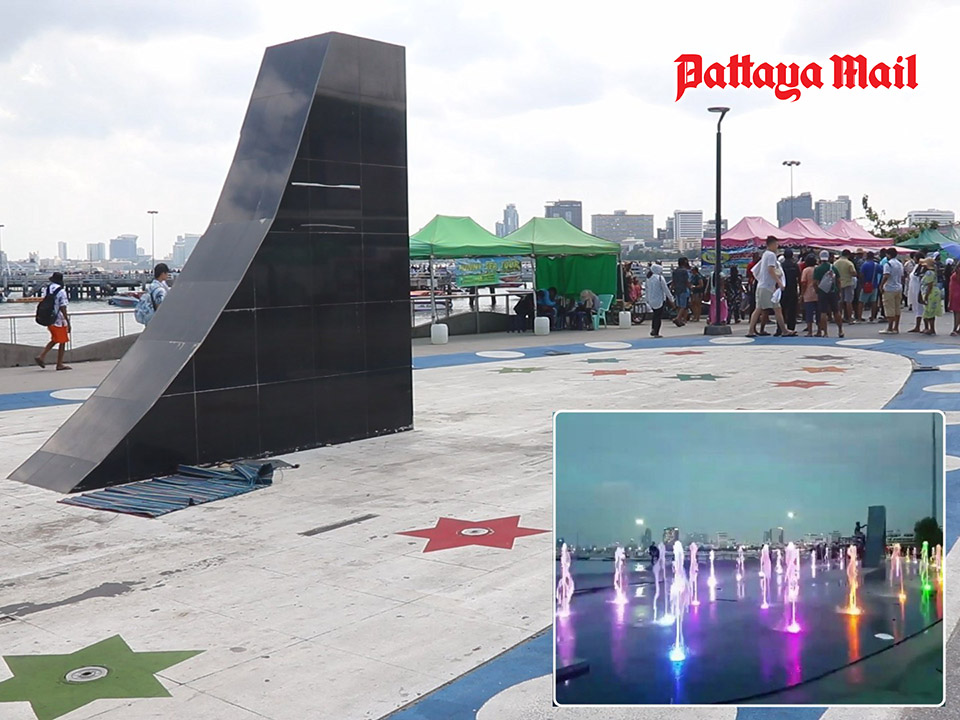
PATTAYA, Thailand – The once-promising tourism project at the Bali Hai Pier in Pattaya City stands today as a stark testament to mismanagement and squandered opportunities. What was envisioned as a revitalization effort to enhance Pattaya’s appeal to tourists has devolved into a symbol of wasted resources and failed oversight.
Initiated with grand aspirations in November 2017, the project aimed to transform the pier area into a vibrant public space, breathing new life into Pattaya’s tourism sector. With a substantial budget of approximately 95 million baht approved by the city council, expectations were high. Plans included extensive renovations to pier buildings and ambitious landscaping efforts covering over 10 Rais (16,000 sq.m) of land. The crown jewel of the project was the “Dancing Fountain Plaza,” envisioned as a captivating landmark to attract visitors.
However, reality has not mirrored the initial optimism. Reports now highlight the rapid decline of the project, with the “Dancing Fountain Plaza” standing as a solemn reminder of unfulfilled promises. Despite initially drawing crowds with its mesmerizing fountain display, the plaza fell into disuse after a mere two years due to neglect and inadequate maintenance. Critics rightfully denounce the project as yet another example of mismanaged public funds and failed oversight, leaving taxpayers questioning the efficacy of their elected officials.
Efforts to salvage the project have proven futile, with the fountain plaza languishing in a state of disrepair despite previous attempts at restoration. This failure underscores the urgent need for accountability and transparency in the management of public funds. Taxpayers deserve to know why their hard-earned money was squandered on a project that ultimately failed to deliver on its promises.
As Pattaya grapples with the fallout from this debacle, it is imperative that lessons are learned and corrective measures are taken. The responsible parties must be held to account, and mechanisms must be put in place to prevent such missteps in the future. Pattaya’s reputation as a premier tourist destination hangs in the balance, and decisive action is needed to restore public trust and confidence in the city’s governance.
In the aftermath of this failed venture, one thing is clear: the citizens of Pattaya deserve better. It is time for those in positions of authority to prioritize transparency, accountability, and prudent stewardship of public resources. Anything less would be a disservice to the people who call this city home and to the visitors who come here seeking unforgettable experiences.








